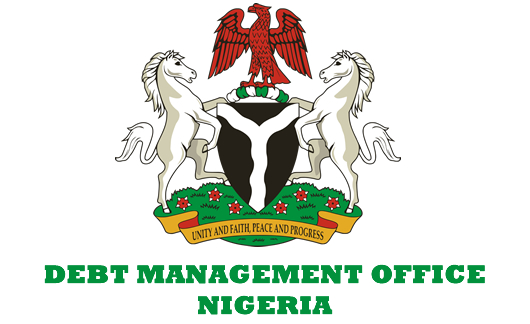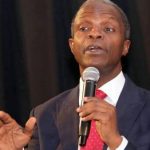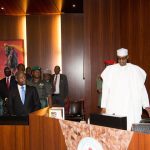The Debt Management Office has revealed reasons behind the federal government decision to issue Eurobond.
The Director General, DMO, Patience Oniha explained that the amount Nigeria could borrow from concessional loans are limited.
The DMO boss said that the spike in the level of public debt in the past three years was as a result of the 50 per cent drop in government’s revenue due to slump in crude oil price, naira depreciation as well as the recession the economy went into in 2016.
The country had last year borrowed over $7 billion from the Eurobond market.
The Debt Management Office has revealed reasons behind the federal government decision to issue Eurobond.
The Director General, DMO, Patience Oniha explained that the amount Nigeria could borrow from concessional loans are limited.
The DMO boss said that the spike in the level of public debt in the past three years was as a result of the 50 per cent drop in government’s revenue due to slump in crude oil price, naira depreciation as well as the recession the economy went into in 2016.
The country had last year borrowed over $7 billion from the Eurobond market.
The Debt Management Office has revealed reasons behind the federal government decision to issue Eurobond.
The Director General, DMO, Patience Oniha explained that the amount Nigeria could borrow from concessional loans are limited.
The DMO boss said that the spike in the level of public debt in the past three years was as a result of the 50 per cent drop in government’s revenue due to slump in crude oil price, naira depreciation as well as the recession the economy went into in 2016.
The country had last year borrowed over $7 billion from the Eurobond market.
The Debt Management Office has revealed reasons behind the federal government decision to issue Eurobond.
The Director General, DMO, Patience Oniha explained that the amount Nigeria could borrow from concessional loans are limited.
The DMO boss said that the spike in the level of public debt in the past three years was as a result of the 50 per cent drop in government’s revenue due to slump in crude oil price, naira depreciation as well as the recession the economy went into in 2016.
The country had last year borrowed over $7 billion from the Eurobond market.
The Debt Management Office has revealed reasons behind the federal government decision to issue Eurobond.
The Director General, DMO, Patience Oniha explained that the amount Nigeria could borrow from concessional loans are limited.
The DMO boss said that the spike in the level of public debt in the past three years was as a result of the 50 per cent drop in government’s revenue due to slump in crude oil price, naira depreciation as well as the recession the economy went into in 2016.
The country had last year borrowed over $7 billion from the Eurobond market.
The Debt Management Office has revealed reasons behind the federal government decision to issue Eurobond.
The Director General, DMO, Patience Oniha explained that the amount Nigeria could borrow from concessional loans are limited.
The DMO boss said that the spike in the level of public debt in the past three years was as a result of the 50 per cent drop in government’s revenue due to slump in crude oil price, naira depreciation as well as the recession the economy went into in 2016.
The country had last year borrowed over $7 billion from the Eurobond market.
The Debt Management Office has revealed reasons behind the federal government decision to issue Eurobond.
The Director General, DMO, Patience Oniha explained that the amount Nigeria could borrow from concessional loans are limited.
The DMO boss said that the spike in the level of public debt in the past three years was as a result of the 50 per cent drop in government’s revenue due to slump in crude oil price, naira depreciation as well as the recession the economy went into in 2016.
The country had last year borrowed over $7 billion from the Eurobond market.
The Debt Management Office has revealed reasons behind the federal government decision to issue Eurobond.
The Director General, DMO, Patience Oniha explained that the amount Nigeria could borrow from concessional loans are limited.
The DMO boss said that the spike in the level of public debt in the past three years was as a result of the 50 per cent drop in government’s revenue due to slump in crude oil price, naira depreciation as well as the recession the economy went into in 2016.
The country had last year borrowed over $7 billion from the Eurobond market.













